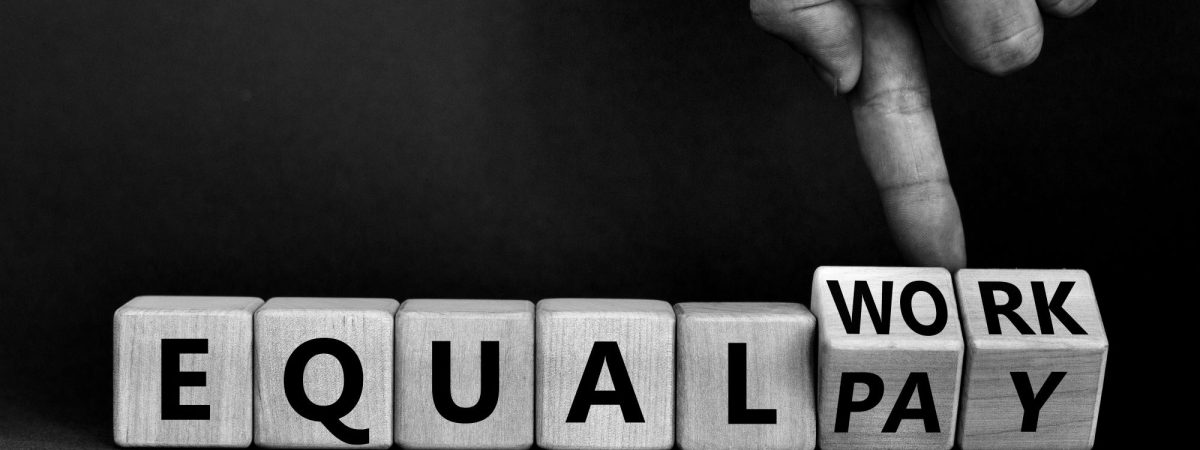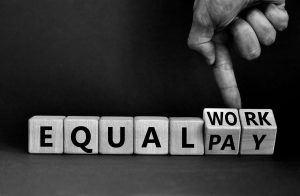Home » Employment » Equal Pay
Equal Pay
The Washington Equal Pay and Opportunities Act is designed to close the gap in wages and advancement opportunities for Washington workers, especially women. Employers must provide equal pay for equal work and equal opportunities for career advancement, regardless of gender. But Washington goes several steps further to promote fairness, banning harmful employer practices that have historically perpetuated disparities in pay. For example, employers cannot ask potential new hires about their past salary or wage history, nor can they ask the candidate’s current or former employer for that information. Employers are also not allowed to prevent their employees from discussing their wages. And employers are prohibited from taking any negative action against employees who communicate about their compensation.
Can a new employer ask me about my past salary or hourly wage during a job interview?
Not if you’re an employee in Washington. Under a 2019 change to the Washington Equal Pay and Opportunities Act, it is unlawful for an employer to ask a job applicant about her wage or salary history. A job applicant is not required to answer questions about past compensation and an employer or potential employer may not legally retaliate against her for refusing to disclose salary or wage history.
Can a potential new employer ask my current or former employer about my salary or hourly wage?
No. Under the Washington Equal Pay and Opportunities Act, it is unlawful for an employer to ask a current or past employer about your salary or hourly wage.
I am being promoted or transferred to a different department. Can my employer use my current salary or hourly wage to set my compensation in the new position?
The rules that prevent employers from asking about compensation history are a bit trickier when your employer already knows your salary. But Washington law prohibits an employer from providing compensation based on gender and specifically provides that an individual’s previous wage or salary history is not a defense to claim of a discriminatory pay practice. In addition, an employee receiving an internal promotion or transfer is legally entitled to know the employer’s wage scale or salary range for the new position.
Can my employer stop me or other employees from discussing our salaries or wages?
No. In Washington, it is unlawful for an employer to have a policy or practice that prohibits employees from discussing their wages. An employer may not discharge or otherwise retaliate against employees for discussing their wages.
Can my employer fire me or retaliate for talking about wages?
No. In Washington, it is unlawful for an employer to have a policy or practice that prohibits employees from discussing their wages. An employer may not discharge or otherwise retaliate against an employee for discussing her salary or wages.
Can my employer fire me or retaliate for asking for a raise?
It may depend on how you ask. If you are an at-will employee, your employer can generally fire you for any reason or no reason at all. However, Washington law provides that an employer may not discharge or otherwise retaliate against an employee for asking the employer “to provide a reason for the employee’s wages or lack of opportunity for advancement.”
What can I do if an employer is using my salary or wage history to set my salary or wages?
You may want to consult with an experienced Washington employment lawyer. Depending on the facts of your situation, it may be appropriate to file a lawsuit against your employer to recover unpaid wages or to get a court order (an injunction) directing the employer to stop the unlawful practice. You can also file a complaint with the Washington State Department of Labor & Industries, which has the power to investigate and issue fines.
Can I sue my employer for violating the Washington Equal Pay and Opportunities Act?
Washington law authorizes workers who have been the victims of discriminatory pay practices to bring a civil lawsuit against their employers. A successful plaintiff may be able to recover the greater of her actual damages or five thousand dollars, plus interest on any unpaid wages. A court may also issue an order, known as an injunction, prohibiting the employer from continuing the unlawful practice. To encourage attorneys to bring valid claims on behalf of employees who could not otherwise afford a lawyer, Washington law provides that a prevailing employee can also recover legal fees and expenses. You should consult with an experienced Washington employment lawyer before commencing a lawsuit against your employer.


